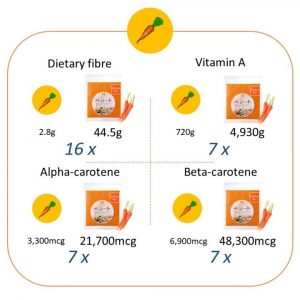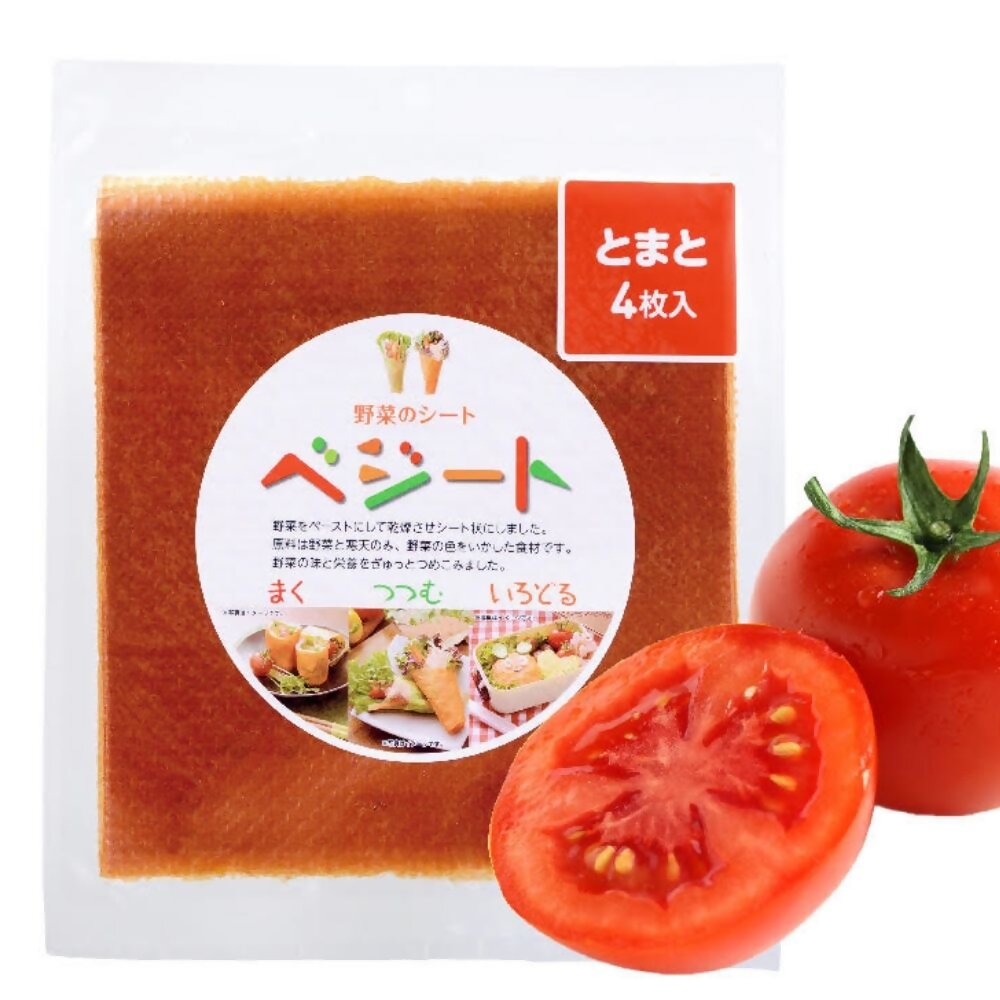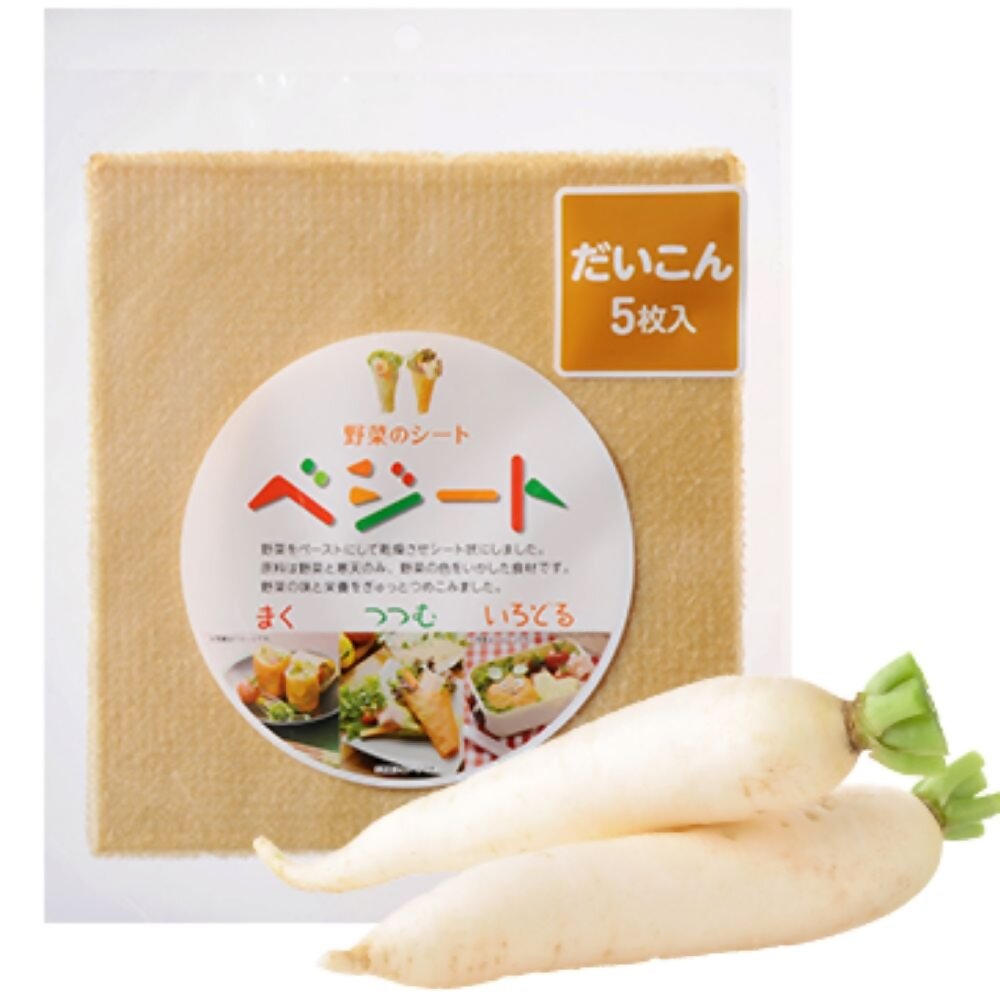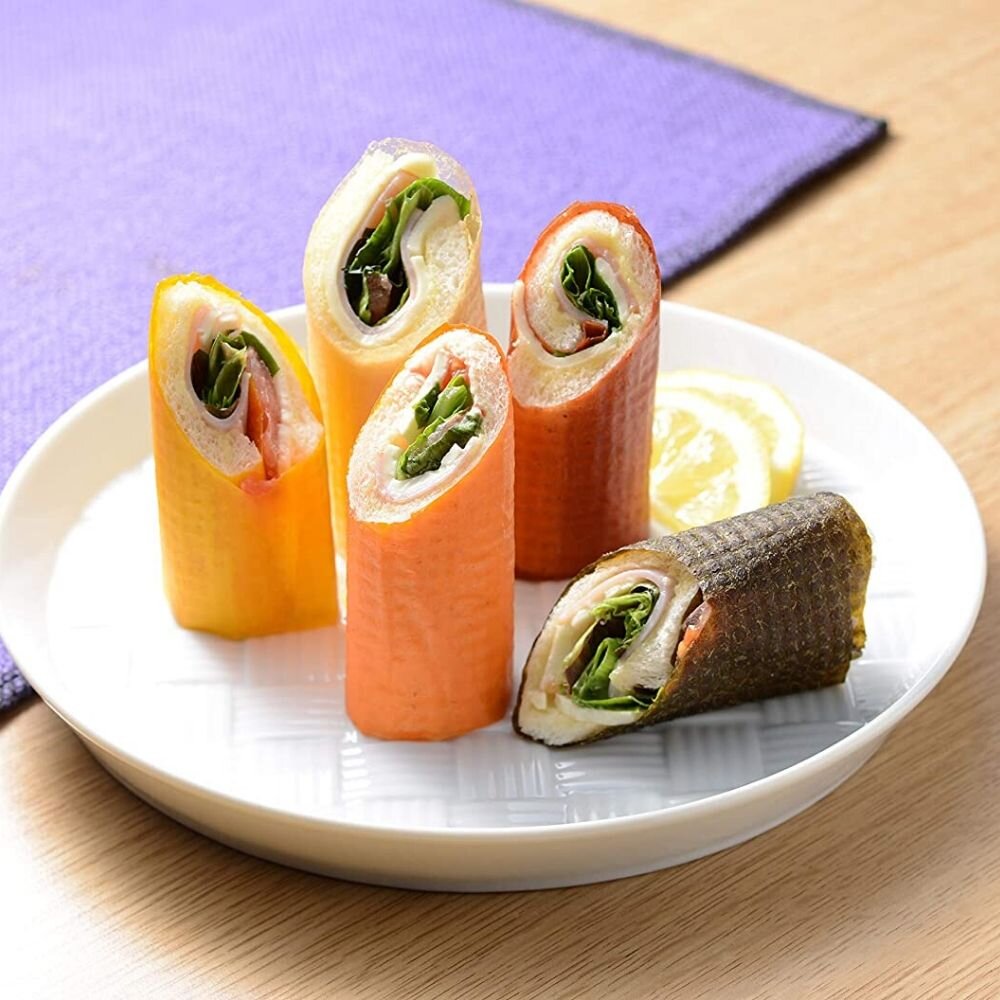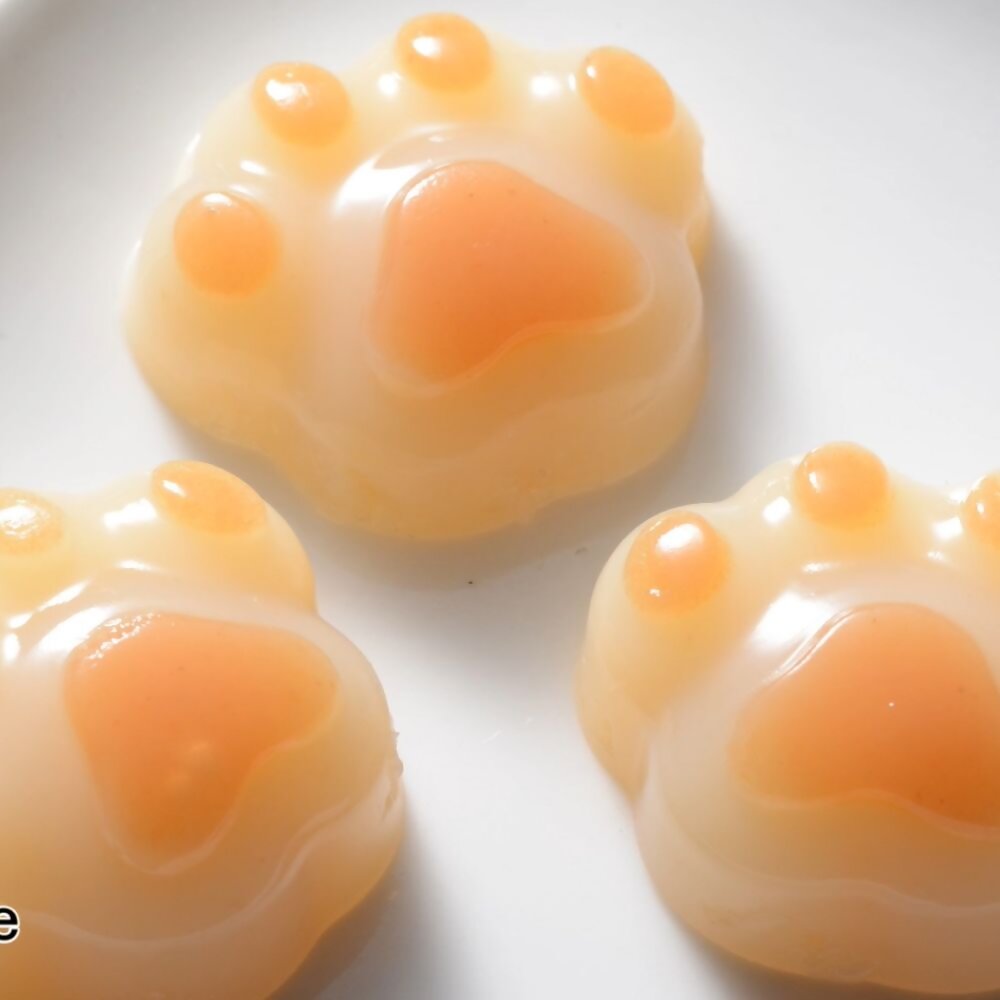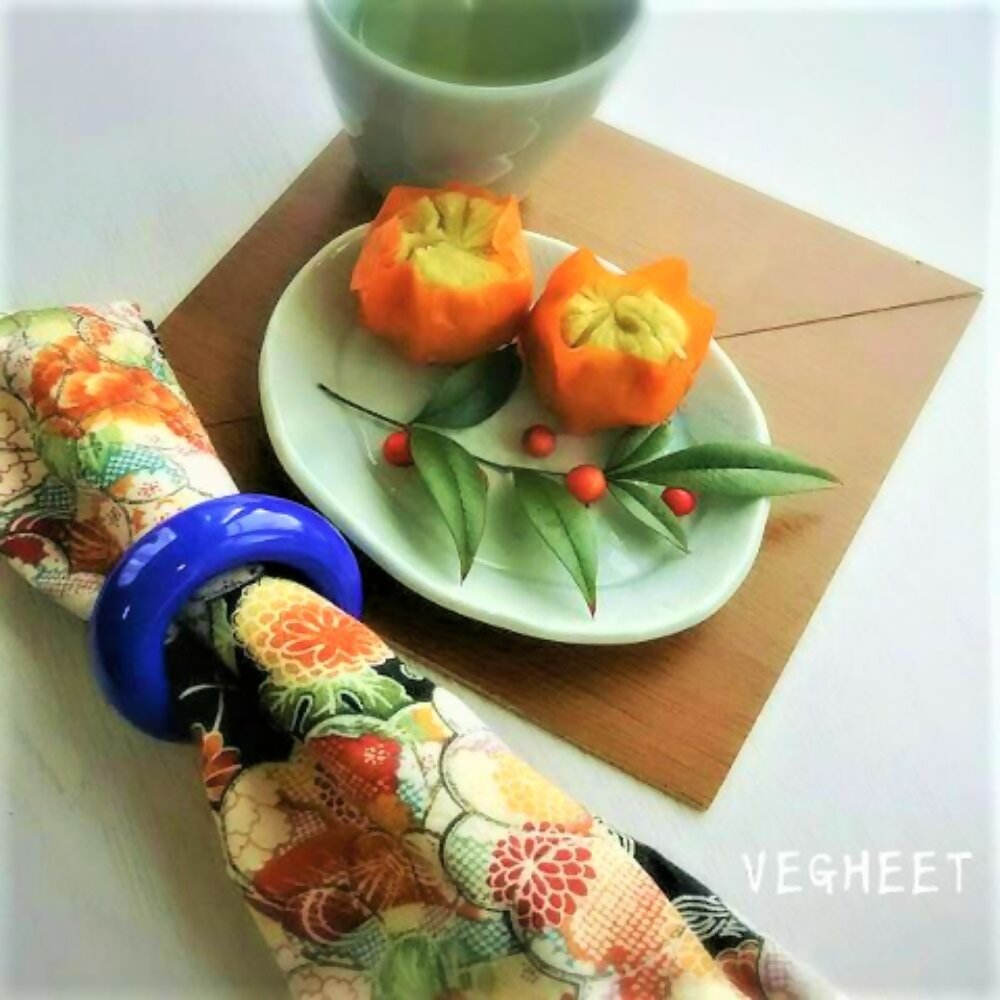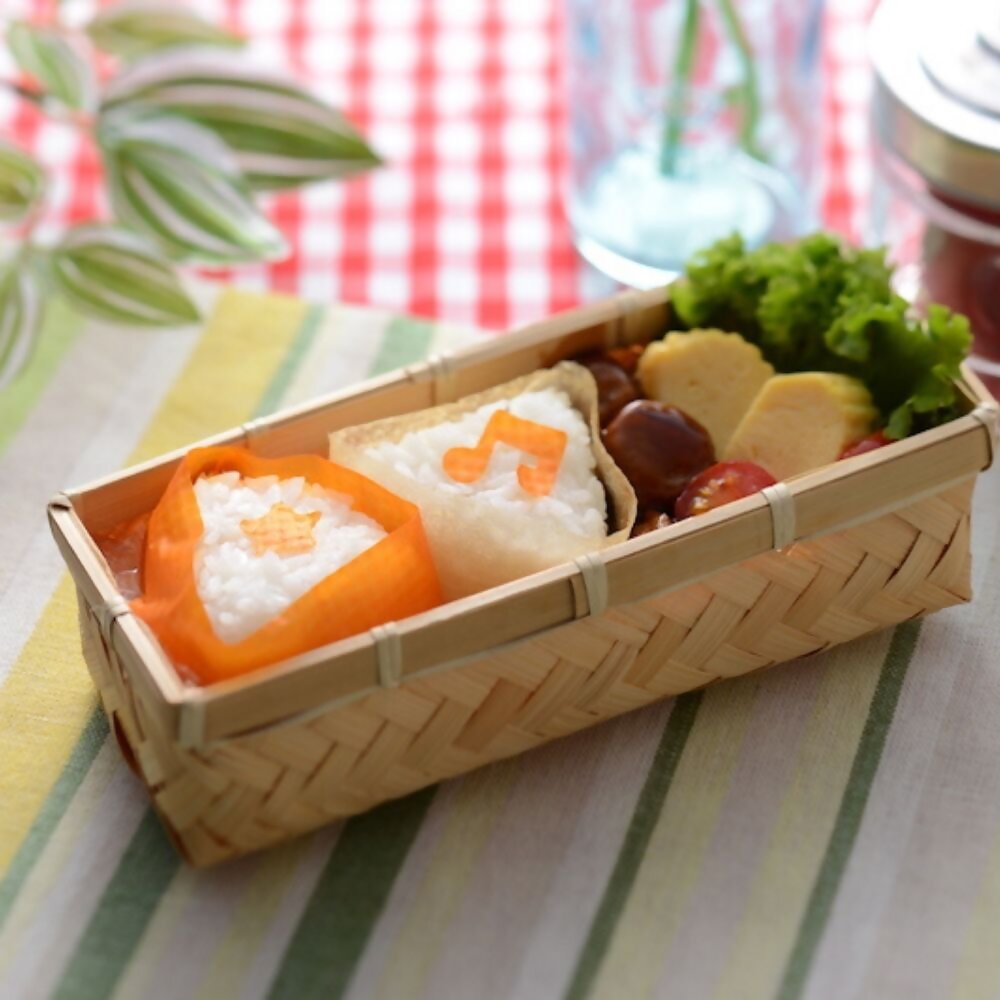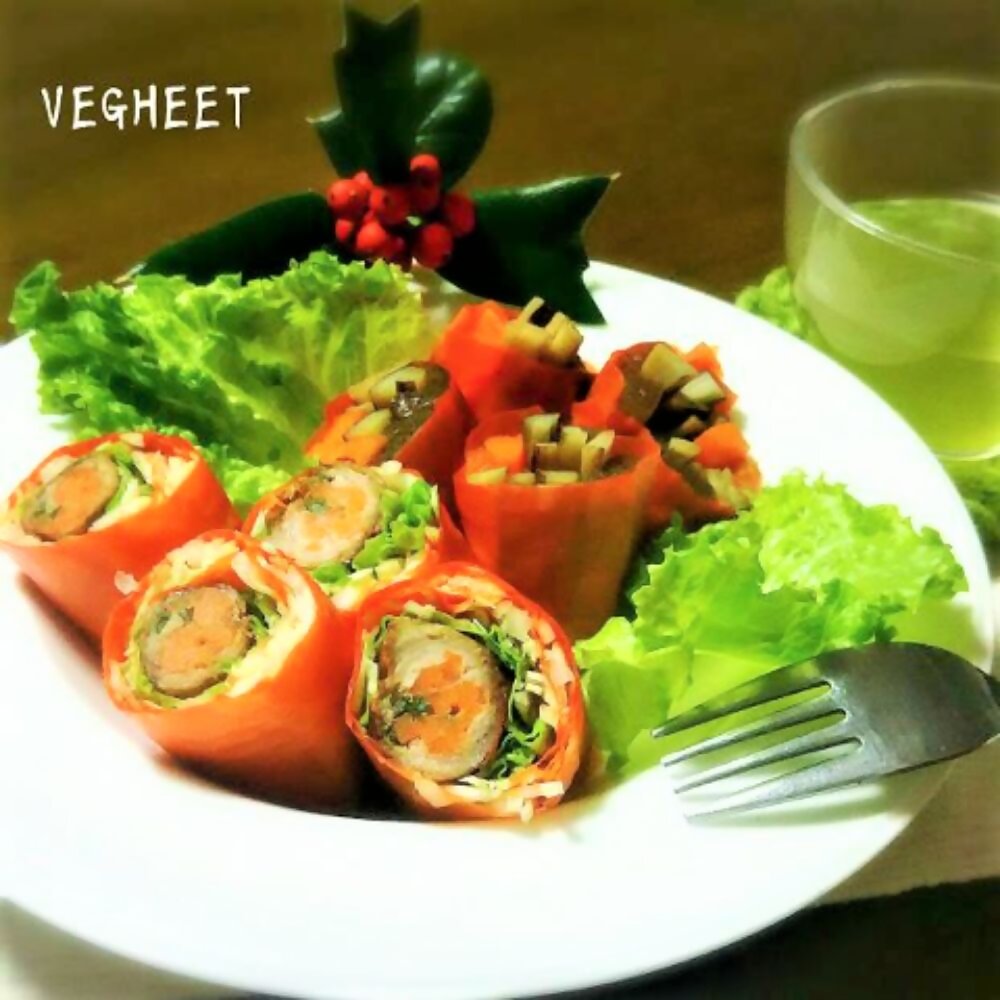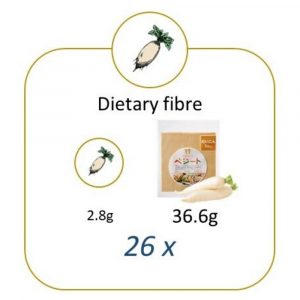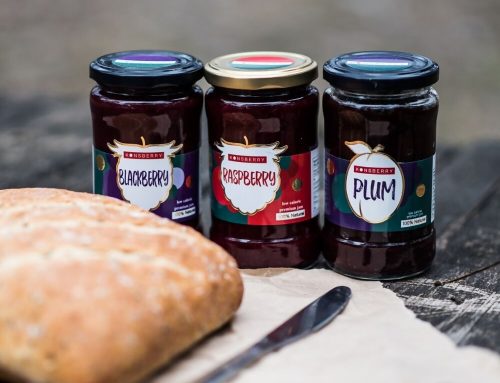Sustainable farming and preventing food wastage
Vegheet vegetable sheets are all-natural products developed in Nagasaki Prefecture using modern technology to reduce food wastage. Imperfect looking vegetables, that would otherwise be discarded, can be used in this production; which helps to protect the farmers’ incomes. These plant-based sheets are made from vegetables that are sustainably farmed.
Around the world, 10-40% of produce is discarded because they do not meet commercial standards of shape and size. Vegheet sheets use market-rejected produce that contain the same flavour and nutrition as the produce that make it to the retailers.
Delicious and nutritious
Vegheet is made only from vegetable and agar agar. There are absolutely no additives or preservatives used in the production of Vegheet sheets. After many years of research and development, we are able to produce a sheet that maintains the delicious flavour of vegetables. In addition, Vegheet retains essential vitamins, minerals and dietary fibre of the original plants.
Simple to use
No cooking is required as these sheets are ready-to-eat. These amazingly versatile sheets are extremely easy to use. You can cut, tear, fold, roll, and shape them however you want to. To start creating, spray the sheets slightly and let them sit for 30 seconds. Seal the sheets by dabbing a little water and pressing the appropriate areas together.

Production process
The vegetables are cleansed and specially treated with agar-agar to form a mouldable paste. No colouring, flavouring, synthetic chemicals, or preservatives are used. Great care is taken to maintain the nutrients, fibre, colours and original flavours of the vegetables.

Flavours
Carrot
Carrots are incredibly nutritious root vegetables. They are appreciated for their fibre and beta-carotene content. In addition, they contain vitamin A, B, C, and K; calcium; magnesium; phosphorus; potassium; and folate. Carrots are rich in antioxidants and are studied to have anticarcinogenic properties. They are researched to help prevent cardiovascular disease, improve eye health, assist blood sugar regulation, aid digestion, and increase immunity.
Radish
Radish may not be everyone’s favourite root vegetable, but we cannot deny their high nutritional value. Radish contains vitamin, A, B, C, and K; calcium; potassium; magnesium; iron; zinc; and high fibre content. It helps improve digestion, boost immunity, improve cardiovascular health, regulate blood sugar, and detoxify the body.
Pumpkin
Pumpkins are so nutritious that some consider them superfood. The list of vitamins and minerals include vitamin A, C, and E; beta-carotene; potassium; zinc; and fibre. Pumpkins are found to detoxify the liver, strengthen the eyes, help prevent cancer, regulate blood sugar, and boost immunity.
Spinach
Spinach is a dark green leafy vegetable rich in soluble vitamins, particularly vitamin A and vitamin K. It is also rich in vitamin B, C, and E; manganese; iron; copper; calcium; potassium; phosphorus; zinc; beta-carotene, lutein, and fibre. Spinach is found to have good anti-inflammatory and antioxidant effects. It is studied to improve eye health, skin health, cognitive function, cardiovascular health, muscular strength, and digestion, to name a few benefits.
Tomato
Tomato is a popular fruit and vegetable in global cuisines. It is rich in vitamin A, B, C, E, and K; potassium; magnesium; phosphorus; manganese; folate; and fibre. Tomatoes are studied to have strong antioxidant and anticarcinogenic properties. Furthermore, the high levels of catotenoids, such as lycopene, beta-carotene and lutein, contribute to tomatoes’ anti-inflammatory effects; which help musculoskeletal health, cardiovascular health, and skin health.
Nutritional composition comparison
*Per 100g
Carrot
contains 16 times more dietary fibre, 7 times more vitamin A, 7 times more alpha-carotene, and 7 times more betacarotene than the original vegetable
Radish
contains 26 times more dietary fibre than the original vegetable
Pumpkin
contains 13 times more dietary fibre, 39 times more vitamin A, 10 times more alpha-carotene, and 40 times more beta-carotene than the original vegetable
Spinach
contains 19 times more dietary fibre and 3 times more iron than the original vegetable
Tomato
contains 35 times more dietary fibre and 13 times more lycopene than the original vegetable
Alpha-Carotene, Beta-Carotene, & Lycopene
These are all natural pigments found in plants that get converted into vitamin A when it enters the body. In addition, lycopene has strong antioxidant effects and is said to have positive effects on reducing the signs of ageing skin as well as preventing sun spots, wrinkles and the after effects of sun burns.
Dietary Fibre
There are two kinds of dietary fibre: water soluble and water insoluble fibre. Agar agar which is used as the binding ingredient for vegheet is an excellent source of water soluble dietary fibre. And because vegheet is made with the whole vegetable it maintains both soluble and insoluble fibre from the plant. Dietary fibre helps lower blood sugar after a meal, and helps to maintain blood cholesterol and sodium levels. It is also effective in preventing chronic diseases like hypertension, high blood pressure and diabetes.
Iron
Iron combines with protein and is carried throughout the body in the blood. The transported iron becomes haemoglobin which transport of oxygen and is also a component of myoglobin; which helps to store oxygen in muscle. Insufficient iron can result in iron deficiency or anaemia; which makes the body feel heavy, breathless, pale, and tired.
Vitamin A
Retinol, a major component of vitamin A, helps to keep the eyes and skin healthy. In addition, retinol is necessary for the synthesis of rhodopsin, a substance that supports the photoreceptors in the eye allowing the eye to function better in dim light.
